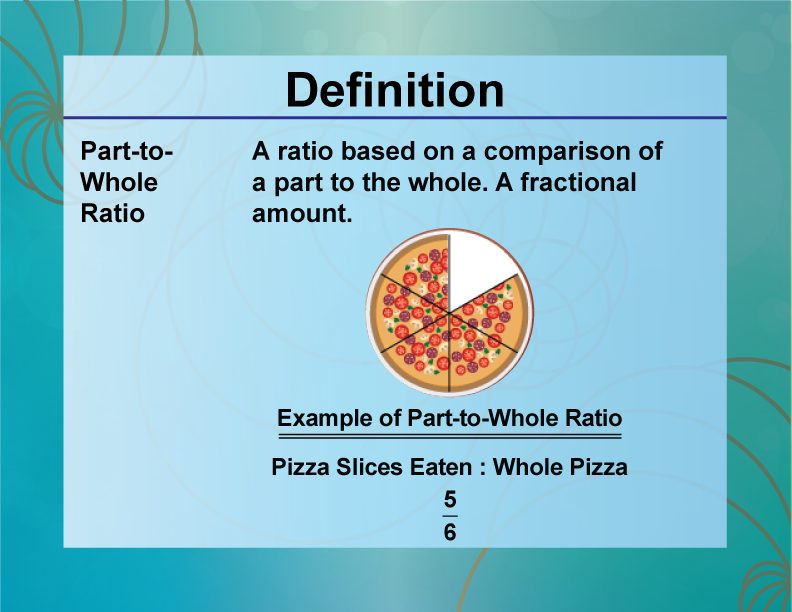
Display Title
Definition--Ratios, Proportions, and Percents Concepts--Part-to-Whole Ratios
Display Title
Part-to-Whole Ratios

Topic
Ratios, Proportions, and Percents
Definition
Part-to-whole ratios compare one part of a whole to the entire whole. These ratios are more commonly known as fractions.
Description
Part-to-whole ratios are used to compare a part of a whole to the entire whole, providing insights into the composition of a dataset or population. This type of ratio, more commonly referred to as fractions, is widely used in statistics, finance, and everyday decision-making.
For instance, if there are 20 students in a class and 5 of them are left-handed, the part-to-whole ratio of left-handed students to the total number of students is 5/20, which simplifies to 1/4.
In math education, learning about part-to-whole ratios helps students understand fractions, percentages, and proportions, which are essential for analyzing data and making informed decisions.
Teacher’s Script: "If you have 3 red marbles out of a total of 15 marbles, the part-to-whole ratio of red marbles to all marbles is 3:15, which simplifies to 1:5."

For a complete collection of terms related to Ratios, Proportions, and Percents click on this link: Ratios, Proportions, and Percents Collection.
| Common Core Standards | CCSS.MATH.CONTENT.6.RP.A.1, CCSS.MATH.CONTENT.6.RP.A.2, CCSS.MATH.CONTENT.6.RP.A.3, CCSS.MATH.CONTENT.7.RP.A.3, CCSS.MATH.CONTENT.HSG.SRT.A.1.B |
|---|---|
| Grade Range | 6 - 8 |
| Curriculum Nodes |
Algebra • Ratios, Proportions, and Percents • Ratios and Rates |
| Copyright Year | 2021 |
| Keywords | ratios, Percent, definitions, glossary terms, rates, proportions |